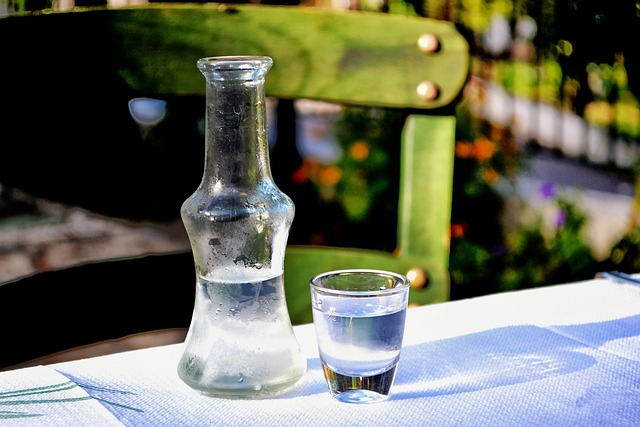
Ouzo and Mastika
Ouzo: They say you can make alcohol from just about anything! Well, take what’s left after the grapes have been pressed and all that nice juice is gone to be fermented into wine, then the skins, seeds, stems etc. Mix them with some herbs, roots, berries and flowers, let them ferment for a while, then distill them and you will get an alcohol that is said to be the origin of Ouzo. Even today the Greeks drink the “cheapero”, fermented residue of the grapes, which is then distilled to produce a very strong alcohol. If you drink generous amounts of this alcohol, then be prepared to face the consequences the next day! However, modern day Ouzo comes from alcohol distilled from molasses, mixed with anise plus other herbs

For most people it can be difficult to distinguish one Ouzo from another, although experts will tell you that a good Ouzo must always be re-distilled, unlike most Ouzo which are simply blended. You will find that there is a wide range of Ouzo on the market that vary in alcohol content (around 40%), in price and in the strength of anise’s taste. Connoisseurs say that one of the best Ouzos comes from Macedonia and the regions of Lesvos (Mytilini), although there are many distilleries operating throughout Greece. It is a good “taste of Greece” to take it home as a gift for friends and some Ouzos are packaged in very nice bottles which can then be reused as vases or as a simple ornament. If you prefer to keep it to yourself then you will find that it is normal to drink it mixed with water and that it is an excellent complement to your “ Meze ”.
Mastika:
Mastika, a resinous gum from a species of pistachio tree, the “Pistacia lentiscus”, has been used in Greece for hundreds of years as a remedy for a wide range of gastro intestinal disorders.
It has been found to be a viable alternative to drugs in the treatment of gastritis, gastroesophageal reflux disorders (GERD) and many types of intestinal inflammation.
It is also a healthy and effective alternative to antibiotics in the treatment of stomach and duodenal ulcers and in the elimination of bacteria, so frequently the cause of these diseases: “Helicobacter pylori” (H. pylori).
In fact, unlike antibiotics, Mastika does not also eliminate friendly intestinal bacteria, which are so important for health and well-being.
